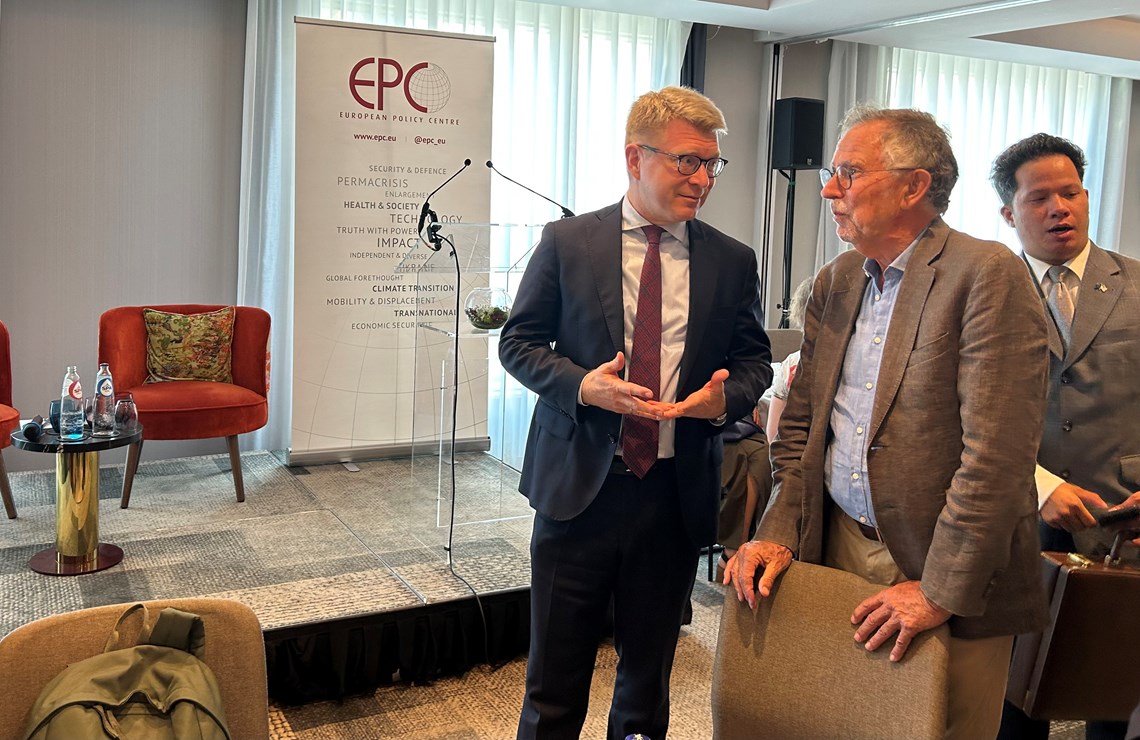Denmark assumes the Presidency of the Council of the EU in two weeks

In two weeks' time, it will be Denmark's turn to take over the Presidency of the Council of the European Union. The fact that Denmark is in the middle of the global spotlight in several respects was not to be missed when its EU ambassador, Carsten Gronbech-Jensen, hosted a breakfast to give his picture of Denmark's priorities for the EU during their presidency.
The breakfast held at the hotel Sofitel on Tuesday morning in Brussels was quickly fully booked. A single coffee machine with a fair distance between the coffee and the milk created some impatience in the queue before Ambassador Carsten Gronbech-Jensen was to begin.
“We have two wars in our vicinity, plus a trade war, so it is a situation of great uncertainty we have to deal with and where we also have to be prepared for events we cannot plan or anticipate”, he said.
The priorities, the big ones, he summed up in two words; safety and competitiveness.
He mentioned targets for significantly increased national defence budgets and increased focus on the protection of infrastructure, such as cables and pipes. In general, it is about increased preparedness throughout the European Union. He also mentioned longer-term goals such as not being too dependent on other geographies for oil, gas and critical minerals.
With regard to the second major focus of the EU, competitiveness, he referred to the current attempts to reduce the burden on businesses in terms of regulation and reporting, which he said proved particularly problematic for small and medium-sized enterprises. He also mentioned the importance of not making the same mistakes in the future, placing bureaucratic burdens on companies that reduce the competitiveness of EU companies compared to competitors in China and the US, for example.
However, increased competitiveness requires increased investment. They should increasingly come from private savings, he said, repeating the advice of the Italian Enrico Letta's economic report that came a year ago at the request of The European Council.
“Our private capital market in the EU is larger than the US,” he said, but pointed out the differences. Within the EU, this capital does not reach companies to the same extent as in the US.
In addition, he mentioned the ambition for Ukraine to become a member of the EU, that there is “almost consensus” in the Council of Ministers on a common position on the issue of immigration to the EU, and that the EU's new climate targets are expected to be presented in early July.
He did not mention Greenland.
/Gölin Carina Christiansen
